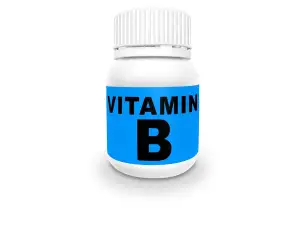Maximize Your Weight Loss Potential: How Much Weight Can You Lose in 75 Days?

- Set Realistic Goals: Determine a healthy and achievable weight loss target for 75 days.
- Calculate Caloric Deficit: Consult a nutritionist to establish a safe daily calorie deficit for effective weight loss.
- Balanced Diet: Focus on consuming whole foods, lean proteins, fruits, vegetables, and whole grains to support weight loss.
- Regular Exercise: Incorporate a mix of cardio and strength training exercises to boost metabolism and burn calories.
- Stay Hydrated: Drink plenty of water throughout the day to aid digestion and promote weight loss.
- Monitor Progress: Keep track of your weight loss journey through regular weigh-ins and measurements.
- Seek Support: Consider joining a support group or working with a health coach to stay motivated and accountable.
Set Realistic Goals: Determine a healthy and achievable weight loss target for 75 days.
When setting weight loss goals for a 75-day period, it is crucial to be realistic and healthy. Aim to lose 1-2 pounds per week, as this is considered safe and sustainable. Therefore, a reasonable target for 75 days would be around 15-30 pounds. Consult with a healthcare provider or nutritionist to determine the best goal based on your individual needs and starting weight. Remember, slow and steady progress is key to long-term success in weight loss.
Calculate Caloric Deficit: Consult a nutritionist to establish a safe daily calorie deficit for effective weight loss.
To calculate your caloric deficit for effective weight loss, it is essential to consult a nutritionist. A professional can assess your current dietary habits, activity level, and weight loss goals to determine a safe daily calorie deficit. This deficit should create a gradual and sustainable weight loss of about 1-2 pounds per week, as recommended by health experts. By working with a nutritionist, you can ensure that you are fueling your body adequately while still creating the necessary calorie deficit for successful weight loss in 75 days.
Balanced Diet: Focus on consuming whole foods, lean proteins, fruits, vegetables, and whole grains to support weight loss.
To support weight loss over 75 days, focus on a balanced diet rich in whole foods. Include lean proteins like chicken, fish, and tofu for muscle repair and growth. Opt for fruits and vegetables high in fiber to keep you full longer and aid digestion. Whole grains such as quinoa and brown rice provide sustained energy levels. Avoid processed foods high in added sugars and unhealthy fats, as they can hinder weight loss progress. Prioritize nutrient-dense options to fuel your body effectively during this period.
Regular Exercise: Incorporate a mix of cardio and strength training exercises to boost metabolism and burn calories.
Regular exercise is key to maximizing your weight loss potential in 75 days. Incorporating a mix of cardio and strength training exercises can help boost your metabolism and burn calories effectively. Cardio exercises like running, cycling, or swimming can elevate your heart rate and increase calorie expenditure. On the other hand, strength training exercises such as weight lifting or bodyweight exercises can build muscle mass, which in turn boosts your resting metabolic rate, helping you burn more calories even at rest. Aim for a balanced workout routine that includes both types of exercises to achieve optimal results in your weight loss journey.
Stay Hydrated: Drink plenty of water throughout the day to aid digestion and promote weight loss.
Staying hydrated is essential for weight loss as water helps to boost metabolism and suppress appetite. Drinking plenty of water throughout the day aids digestion by helping the body break down food more efficiently. Studies have shown that drinking water before meals can also reduce calorie intake, leading to greater weight loss results. Aim to consume at least 8-10 glasses of water daily to support your weight loss journey and overall health.
Monitor Progress: Keep track of your weight loss journey through regular weigh-ins and measurements.
To monitor your weight loss progress effectively, it is essential to have regular weigh-ins and measurements. Weigh yourself once a week at the same time of day, preferably in the morning before eating or drinking. Additionally, take body measurements such as waist circumference, hip size, and body fat percentage. These measurements can provide a more comprehensive view of your progress beyond just the number on the scale. Tracking these changes over time will help you stay motivated and make necessary adjustments to reach your weight loss goals efficiently.
Seek Support: Consider joining a support group or working with a health coach to stay motivated and accountable.
Seeking support can greatly enhance your weight loss journey. Joining a support group or working with a health coach can provide motivation, accountability, and valuable guidance. Studies have shown that individuals who have a strong support system are more likely to achieve their weight loss goals successfully. Having someone to share your challenges and successes with can help you stay on track and overcome obstacles along the way. Consider reaching out for support to maximize your weight loss potential in the next 75 days.
Published: 07. 05. 2024
Category: Health



